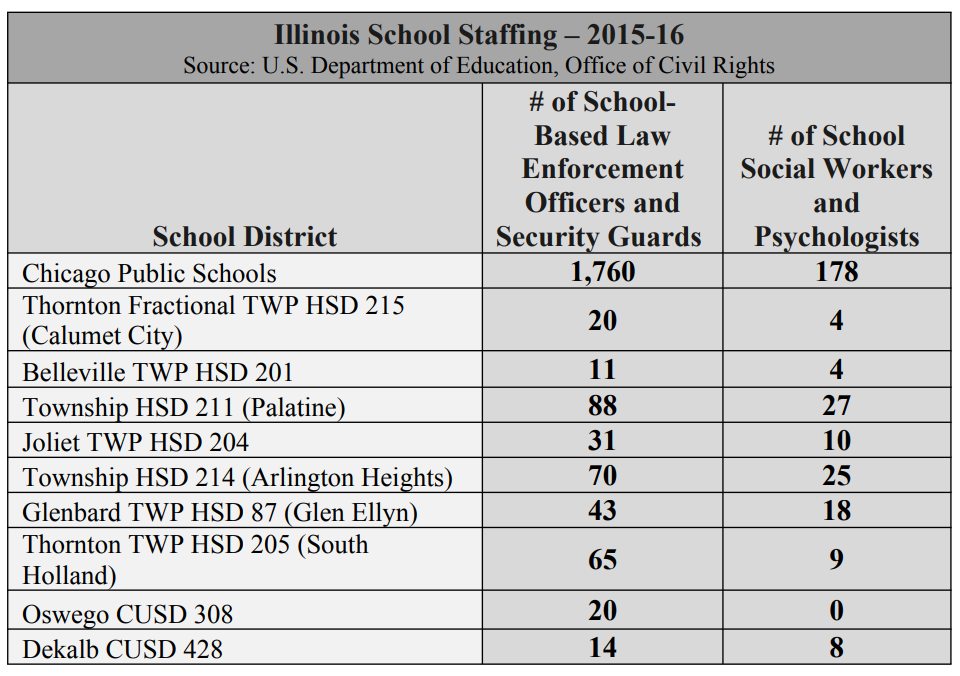
Building Healthy, Supportive, and Safe Learning Environments

In far too many communities across Illinois, the response to school safety concerns has been to “harden” schools with additional school resource officers, security guards, metal detectors, surveillance cameras, and other law enforcement strategies. For example, there are school districts all across the state that have more SROs and security guards than social workers and psychologists (see chart).
This approach has produced severe harm, creating unhealthy learning environments and criminalizing youth all across the state, particularly within communities of color. It has also been ineffective at creating truly safe schools. The safest schools aren’t “hardened” schools; they’re schools in which the developmental needs of all students are being met.
Through the Rethinking Safety campaign, VOYCE will continue to build on its success in affecting statewide policy change through SB100, which created groundbreaking reform in schools’ approaches to student discipline, and the 2019 passage of a state grants pilot that advances the Rethinking Safety campaign by creating a framework for school districts to expand resources for mental and behavioral health, restorative justice, and other trauma-informed supports for youth. To advance systems change within CPS and Illinois to promote safe, supportive, and equitable learning environments through our Rethinking Safety campaign, we will
(1) work with CPS to develop a plan for holistic school safety that does not include SROs, and
(2) organize for its adoption within CPS schools and system wide students, parents, LSC members, teachers and principals will be engaged in the process of creating the plan and organizing) ;, and
(3) engage state-level officials including state legislators and ISBE to identify opportunities to advance the Rethinking Safety campaign at the state level.
For more information about the Rethinking Safety campaign or to get involved, please contact Meyiya Coleman, VOYCE Coordinator, at meyiya@communitiesunited.org or at 773-952-9749.


